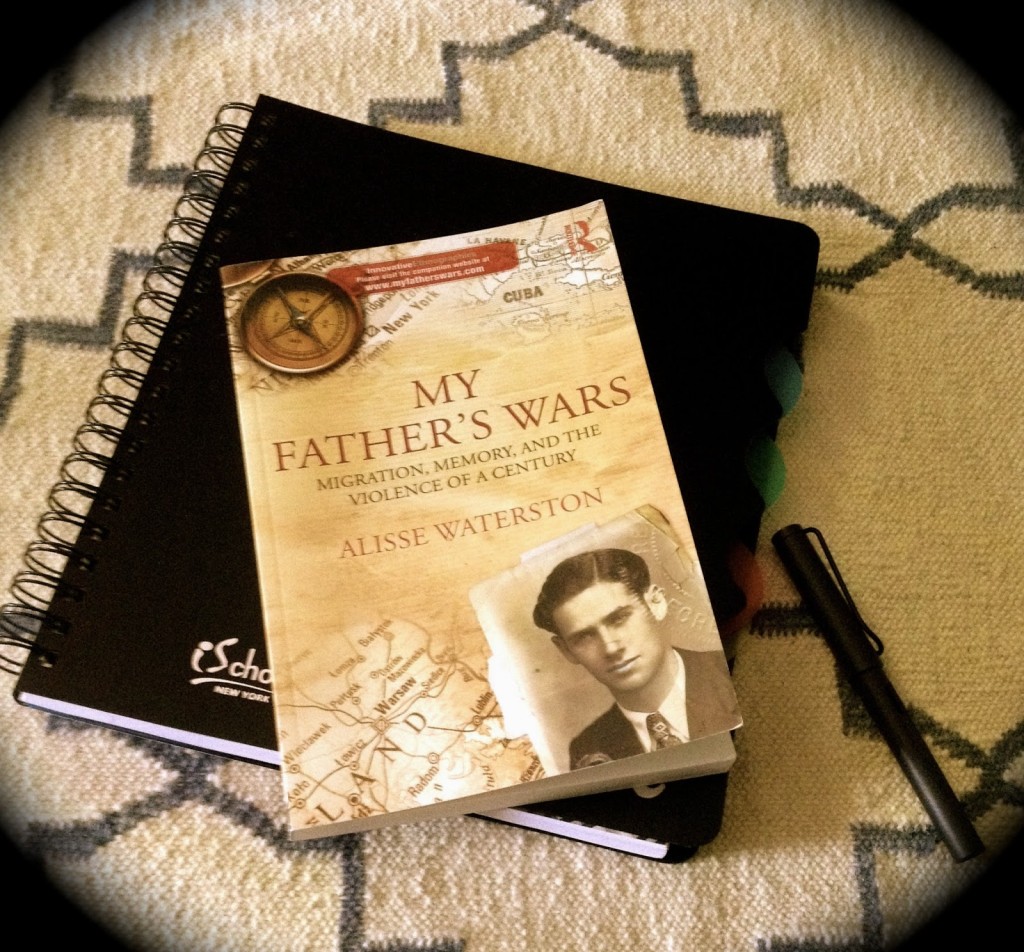This is my sixth post in my Year of Women’s Voices blog
series, and features my review of Alisse Waterston’s ethnography My Father’s
Wars: Migration, Memory and the Violence of a Century (2014). In this intimate ethnography of her father, Dr. Waterston
has written a frank portrayal of her father as a man, a survivor, a soldier, an
entrepreneur, husband, and father. Her
writing honors her father without maudlin sentiment. She frames her father’s lived experiences
with migration and violence, and uses his experiences to illustrate social
theory in a way that makes it accessible for non-academics.
series, and features my review of Alisse Waterston’s ethnography My Father’s
Wars: Migration, Memory and the Violence of a Century (2014). In this intimate ethnography of her father, Dr. Waterston
has written a frank portrayal of her father as a man, a survivor, a soldier, an
entrepreneur, husband, and father. Her
writing honors her father without maudlin sentiment. She frames her father’s lived experiences
with migration and violence, and uses his experiences to illustrate social
theory in a way that makes it accessible for non-academics.
Her writing is crisp, clear, and rich with detail. She
chooses a concise series of her father’s life events that create a reading
experience that is informative, and moving. The reading experience is enhanced by the companion website that
contains photographs, documents, audio files, and videos of her interviews with
her father as she worked on this ethnography. The book becomes a much more intimate experience through watching the
interactions between Dr. Waterston and her father, observing their body language, and listening to their voices.
chooses a concise series of her father’s life events that create a reading
experience that is informative, and moving. The reading experience is enhanced by the companion website that
contains photographs, documents, audio files, and videos of her interviews with
her father as she worked on this ethnography. The book becomes a much more intimate experience through watching the
interactions between Dr. Waterston and her father, observing their body language, and listening to their voices.
As a writer I appreciate Dr. Waterston’s explanation of her
struggles in her dual roles as daughter and ethnographer, and her process of
conducting research. I truly appreciated her discussion of the discipline it
took to not be distracted by the numerous ideas for other projects that called
to her during this project, especially when the experience of the project
became difficult.
struggles in her dual roles as daughter and ethnographer, and her process of
conducting research. I truly appreciated her discussion of the discipline it
took to not be distracted by the numerous ideas for other projects that called
to her during this project, especially when the experience of the project
became difficult.
If you are interested in ethnographic studies, social
theory, history, Judaic studies, anthropology, or if you are looking for an
extremely readable book that might help you understand how the experience of
violence shapes lives, this is the book I would hand you.
theory, history, Judaic studies, anthropology, or if you are looking for an
extremely readable book that might help you understand how the experience of
violence shapes lives, this is the book I would hand you.
What I have learned as a writer:
- It is okay to include yourself in the story.
- Stick with the project even when it is hard, or
other projects beckon seductively from your research. - It is possible
to portray unflattering behaviors in a way that is not overly sympathetic, nor vindictive. - Multimedia
can make a non-fiction project a richer experience, and allows the writer to
include research material that would be otherwise not be available. - Write the story that is hard to write, be
fearless. - Don’t be trapped by conventions of disciplines
or genre.
I am grateful that
Dr. Waterston has created a work that is compelling, and readable on a subject
that is difficult to read about. When
confronted with violence, most of us want to turn away, to shield our eyes and our minds from horrific events. Dr. Waterston reminds us that even if we
want to look away, we must not, we need to understand.
Dr. Waterston has created a work that is compelling, and readable on a subject
that is difficult to read about. When
confronted with violence, most of us want to turn away, to shield our eyes and our minds from horrific events. Dr. Waterston reminds us that even if we
want to look away, we must not, we need to understand.
For a biography and more information about Alisse Waterston and her other books, this is the link to My Father’s Wars website and this is the link to Dr. Waterston’s home page


Pingback: A Year of Women’s Voice’s Retrospective | Writing While Distracted